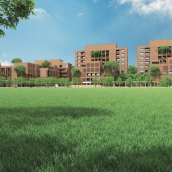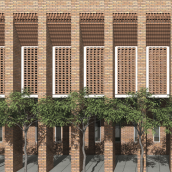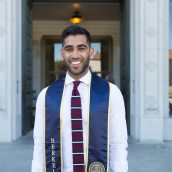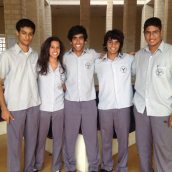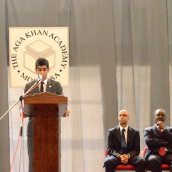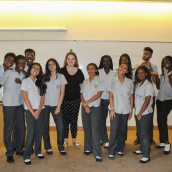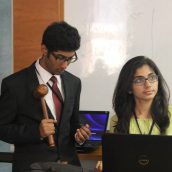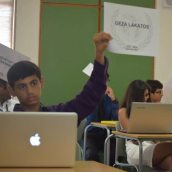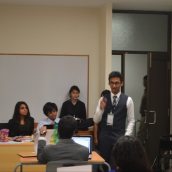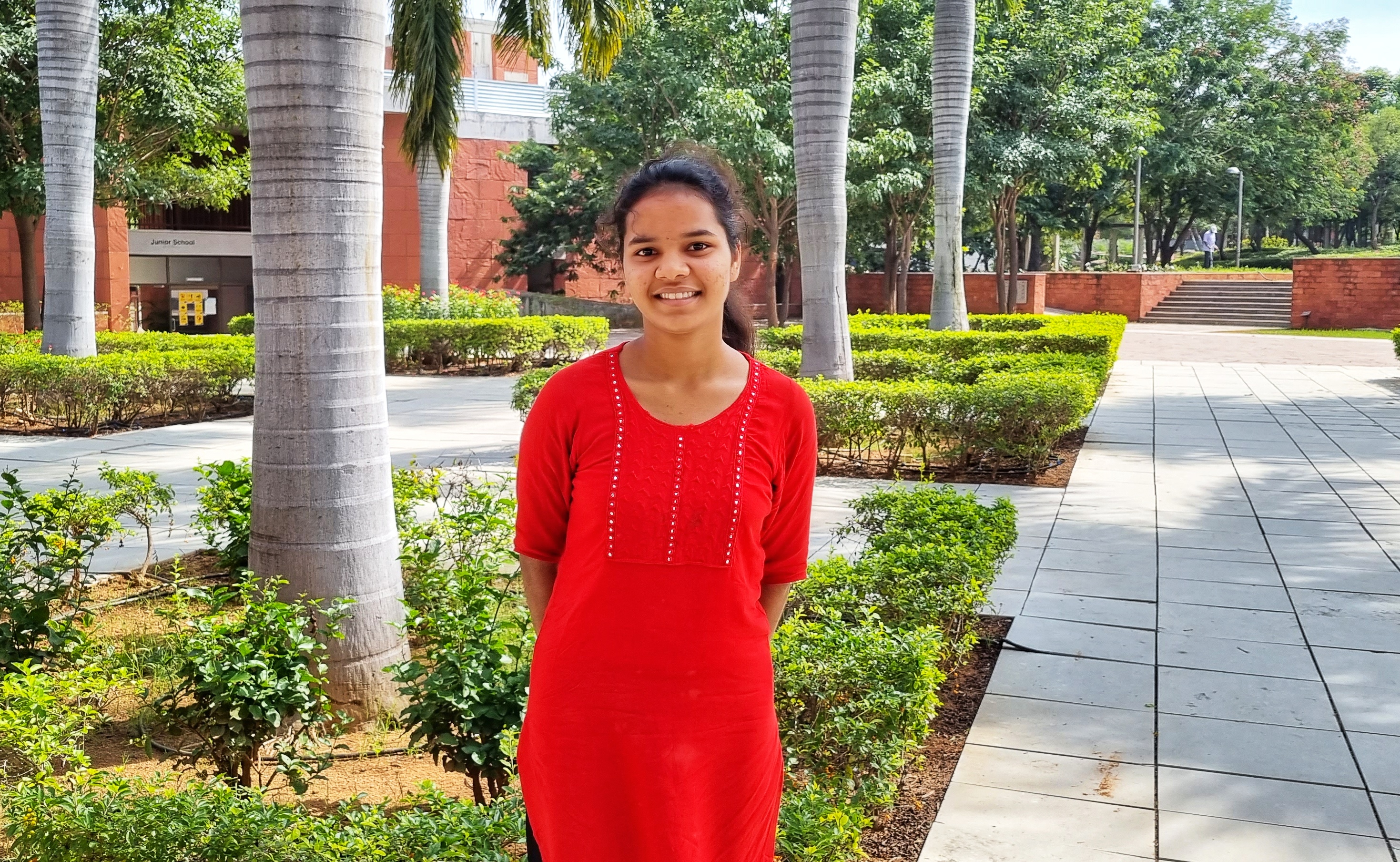Video: AKA Hyderabad Class of 2019 Graduation Ceremony
74 students of the Class of 2019 concluded their International Baccalaureate journey at the Academy with a formal evening ceremony on Saturday 25th May attended by fellow students, alumni, Academy senior management, faculty and staff as well as parents, extended families and invited guests. These students join a growing legacy of global young leaders, driven by the Academy’s unique curriculum and approach to education. The graduation marks a proud milestone of 1,000 such leaders across both the Aga Khan Academy Hyderabad and its sister school, the Aga Khan Academy Mombasa (Kenya).
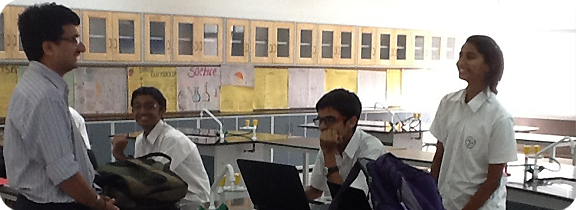
Faculty Development
Promoting excellence in teaching, both on campus and more broadly, is a fundamental goal of the Aga Khan Academies.
The effort to establish a Professional Development Centre (PDC) at each Academy is one of the outstanding features of the network. The PDC aims to strengthen the profession of teaching in the region by providing substantial professional learning opportunities and modelling highly effective educational practice.
Developing strength in teaching
The Academies aim to identify and develop teachers of the highest quality who are committed to both the all-round development of young people and to their own professional excellence. The Academy PDCs support excellence by striving to model best practices in teaching and learning within all of its classes and by providing high quality development opportunities for all Academy teachers.
Faculty members are also enriched by opportunities to work collaboratively with more experienced colleagues from around the globe and to teach abroad within the Aga Khan Academies network.
Investing in teachers
In addition to a broad programme of professional development for faculty and staff, the Academy PDCs offer substantial programmes under their Professional Learning for Educators Series (PLES) for teachers in local government, independent and not-for profit schools.
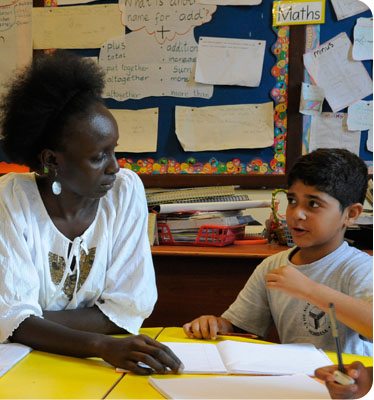
The PLES programmes are specifically designed by the Aga Khan Academies to respond to the needs of teachers, as identified through extensive market research and dialogue with government officials and education departments.
The series includes programmes for teachers in various subject areas as well as specialised programmes focussing on the skills and capabilities required for effective teaching.
Each programme builds professional competence by focussing equally on enhancing teachers’ subject knowledge and on how best to teach that subject. Each provides participants with a balance of intensive facilitated learning activities followed by an extended period of assisted application and observation within the context of their own classrooms.
To read about participants' experience of these programmes, click here.
"In this ambition, we are heartened by an important new World Bank study which indicates that it is not the quantity of time or money that leads to educational success, but rather the quality of specific educational experiences. The stimulus provided by extraordinary teachers and exceptional companions is most important."
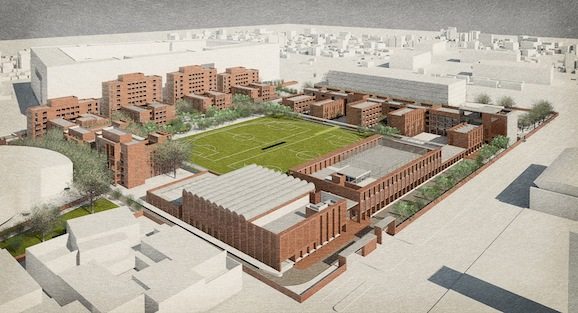
The Aga Khan Academy Dhaka
“This new Academy will be an important node in a network of 18 schools throughout the developing world, providing world class education for young men and women from all backgrounds, irrespective of ability to pay. It will be a remarkable place to go to school.”
His Highness the Aga Khan, Dhaka, Bangladesh, 20 May 2008
Introduction
The award-winning Aga Khan Academy Dhaka represents a significant investment in education by the Aga Khan Development Network for the benefit of Bangladesh. It will become a new national asset for the whole country – and for its broad educational community.
This not-for-profit school will be part of an integrated network of Aga Khan Academies located across 14 countries. The Academy is being established to provide exceptional students with an outstanding education to prepare them for leadership roles in Bangladesh and across the world. Students are selected based on merit, regardless of socio-economic background, gender, race or religion. This ensures that talented students from all sectors of Bangladeshi society can access a world-class education.
Through its Professional Development Centre (PDC), the Academy will also act as a regional hub for academic innovation and excellence. The PDC is dedicated to training new teachers to the highest standards while offering veteran teachers the opportunity to stay on the cutting edge of education through research and practice. This expertise is then shared to enhance teaching and learning at government and other schools.
Award-Winning Design
The Aga Khan Academy will be located on a 20-acre plot in Bashundara, Dhaka and will enrol 750 students (K–12) with a capacity to expand to 1,200. Residential facilities will be provided for students and staff to allow for wide participation and enable a diverse learning community. The school has been designed by renowned international architects to ensure the best possible educational experience in a physical environment that resonates with local Bangladeshi culture and architectural traditions.
The design for the Aga Khan Academy Dhaka received the award for best ‘Future Education’ project at the World Architecture Festival 2017, held on 15-17 November in Berlin, Germany. The award recognises the excellence of the school’s design as well as the project’s intention to generate positive social impact, which arises from the mission and values of the Aga Khan Academies and the wider Aga Khan Development Network (AKDN). The vision of the Academies is to develop future leaders with the skills and knowledge to positively support development in their own societies.
Construction of the Academy begun in 2018, with classes for students planned to start in 2020.
Educating Future Leaders
The Aga Khan Academy in Dhaka will develop leaders with a pluralistic sensibility – individuals who are proudly Bangladeshi yet also connected to the larger, cosmopolitan world. The Academies programme, which is based on the highly regarded International Baccalaureate (IB) curriculum, prepares students to succeed in a globally competitive world while also connecting them to their own language, literature, history and heritage. As they grow to take on leadership roles, this education uniquely prepares them to address the issues facing their communities with solutions that draw on global best practices and are appropriate to the local context. As language is essential to leadership, the Aga Khan Academy will provide bilingual education in English and Bangla, ensuring that students maintain strong ties to their roots. Service learning projects also cultivate the ethic of serving one’s community. In helping their neighboring communities, students are exposed to the challenges they face and learn to come up with contextually appropriate solutions.
Global Linkages
The Aga Khan Academy Dhaka will be the fourth school in a planned network of 18 campuses in Africa, South and Central Asia, and the Middle East, following Mombasa (Kenya), Hyderabad (India) and Maputo (Mozambique). Academy teachers and students will be able to collaborate across this network via technology to share experiences with others from different cultures. Teacher exchanges between schools provide exposure to different learning environments and opportunities to share best practices with colleagues. Student exchanges between schools are also planned to allow them to experience another culture first hand and further their experience of living in a pluralistic world.
International Partners
Education at an Aga Khan Academy is enriched by unique academic and co-curricular partnerships. The Academies work closely with AKDN agencies across many areas including for curricular innovation and to offer students in-depth service learning and internship experiences. Partnerships with internationally renowned institutions contribute to the quality of the Academies’ curriculum and professional development programmes, and ensure that the Academies maintain and enhance their international standing. Partners include the International Baccalaureate, the University of British Columbia, Concordia University, the Government of Ontario (Canada) and Microsoft, with the Academies in Mombasa and Hyderabad having both been recognised as Microsoft Showcase Schools.
Rahim Daya (Class of 2013): Grateful for a balanced education
Growing up in London, England I had no idea that I would owe my intellectual and character development to the dynamic academic and residential programmes at the Aga Khan Academy Mombasa.
I was aware of the work of the Aga Khan Development Network and their efforts to improve the quality of life of communities across the globe, but little more. After moving from London to Moscow at age 12, my parents urged me to consider the programme at the Aga Khan Academy Mombasa, a school 5000 miles away. I was taken aback. Why did they want to send me away? I didn’t mean to knock over the photo frame while kicking around the soccer ball the other day. As I began to read about the Academies and their vision to create leaders, I became excited at the prospect of being part of a rigorous academic programme while having the opportunity to engage in the numerous extra-curricular activities the Academy in Mombasa had to offer.
I was one of the first members of the boarding component of the Academy and, as a result, I saw the programme grow from about 30 students living in two blocks to almost 200 across six blocks. Despite the growth, residential students remained a tight-knit community where younger students felt comfortable interacting with student several grades above them. The commitment to serve the community was of the upmost importance within residential life at the Academy. I recall taking part in cleaning Mama Ngina Drive, the street that ran adjacent to the school, as well as numerous beach clean ups, painting a local madrasa and facilitating a de-worming programme in Bombolulu to name a few. Students were also given the freedom to create their own community service projects. I was a part of a project called Your Environmental Voice, an organisation that aimed to create awareness of environmental issues and undertake initiatives to curb unnecessary pollution in Mombasa. Projects like these allowed for students to lead and take ownership of projects that made a difference in the lives of those around us.
Within the residential programme, I recall the efforts of teachers like Mr. Bernard Dudi – my dorm parent for the majority of my time at the Academy – and others who went out of their way to ensure that students quickly settled into the Academy. Teachers’ doors were always open for a quick chat on academics, current affairs and future plans as well as the results from the previous nights’ Champions League football. In holding the position of dorm captain within the residential community and representing the community on the student council, I was entrusted with a leadership role within residential life that involved organising and facilitating orientation programmes for new students. In addition, dorm captains arranged activities for students on the weekends and liaised with students and teachers to improve the boarding experience for all. Leadership roles like this gave me my first taste of managing projects and people and I continue to draw on these experiences today.
Being a part of and leading the Model United Nations club at the Academy in Mombasa was an experience that I hold most dear. At first, the thought of public speaking and writing resolutions to combat real local, regional and international problems was intimidating enough for me to turn a blind eye to joining the club. However after encouragement from teachers and peers, it wasn't long before I began to gain confidence in addressing long hundreds of fellow delegates without needing to read off a script or feel my legs wobble. Through attending conferences as well as teaching others the skills needed to be a successful delegate, I was tasked with analysing and working with others to construct creative solutions to tackle issues concerning poverty reduction including food security; the prevalence of quality educational institutions; access to clean water and sanitation. These experiences allowed me to begin to comprehend the multiple complexities to a single issue and the ethical responsibility we carry to do all in our power to promote sustainable progress in less privileged communities.
I was particularly challenged by the rigor of the IB Diploma Programme – I quickly learnt that it is essential for students to be able to think independently and work hard to engage with thought provoking course work. Studying six different subjects as well as Theory of Knowledge and writing a 4000-word essay on a chosen topic was a heavy load to bear. Crucially, there was a willingness and determination among the student body to study in groups and push one another to achieve challenging objectives. There was no shame in going to a classmate or more senior students to ask for help and this was in fact commonplace. I think that the challenge of the IB diploma was made much easier by the effort to work together among students. The teachers at the Academy were invaluable in the process as they guided students to reach the academic goals and encouraged students to think outside the box. Their collective love for teaching and determination to see students succeed allowed for the attainment of consistently high grades and development of a passion for learning that continues to drive Academy alumni today.
As I reflect on my time at the Academy and turn an eye to the future it is my hope that I will be able to return to the African continent and help to contribute to the progress being made today. Graduating with a liberal arts education from UC Berkeley and focusing on Political Economy from an African lens has cemented the responsibility I feel to give back to communities and help improve the lives of those troubled by poverty, unemployment and poor governance. Not only did my time at the Academy help me gain admission to a top university but it helped me to grow to be the man I am today by instilling values of social conscience and intellectual curiosity that I continue to hold precious today.
By Rahim Daya
Harriet Chadwick: Committed to students’ success
Before we enter the 2019 – 2020 academic term, we would like to spotlight a few staff from AKA Mombasa who are going on to pursue new adventures in the upcoming academic year. Here, we take a look at Harriet Chadwick, who worked in the Humanities department, and her time at the Academy.
Harriet Chadwick is from Wakefield in West Yorkshire, England and has worked at the Aga Khan Academy Mombasa for three years as a Global Politics, Integrated Humanities and Theory of Knowledge teacher.
During her time at the Academy, Harriet said she has had a positive experience in her professional and personal life.
“I have learnt a lot about my subject, the IB Diploma Programme and the Middle Years Programme,” Harriet said. “I have enjoyed living in Mombasa and learning more about the local history and culture. I have also enjoyed some of the supportive relationships I have had with colleagues and support staff.”
As she will move on to new opportunities, Harriet said she will miss many things about the Academy and Mombasa in general.
“I will miss the best students who I have ever worked with; they are kind, hardworking and charming,” Harriet said. “I have thoroughly enjoyed learning more about the African continent through the curriculum I have taught and developed in both DP and MYP. I will miss the beautiful, tropical sites of Mombasa, such as the palm trees and beaches, minus the sweaty weather.”
As a teacher at the Academy, Harriet said she was able to help students appreciate Humanities with different learning resources.
“In year 7 I have embedded more creative and interactive learning approaches into the curriculum and contributed new resources,” Harriet said. “I have upheld and improved the popularity of Global Politics across the Academy and supported students to achieve their potential in their assessments. Some of the new approaches I have embedded in my DP teaching are to encourage continuous self-reflection, openness and communication from students about problems they are facing, as I believe mentorship is a key ingredient of good teaching, and the importance of collaboration, as opposed to competition, as a way to succeed.”
Although Harriet was teaching the students on how to succeed in Humanities, she said the Academy was also teaching her on how to succeed and become a better teacher.
“The Academy has taught me how to have more confidence in myself as an educator, that teaching involves multiple roles that I have learnt to balance and how to deliver concept-based, rather than content-based learning,” Harriet said. “Moving to another IB school, I will also feel more equipped to deliver the IB programme and I am very grateful to the Academy for providing me with this opportunity to grow.”
Harriet said she will begin a new teaching position that will help her plan her future better. However, she will be dearly missed by her colleagues, according to Susan Abuto, the head of department for the Humanities department.
“Harriet is one of the most passionate teachers I have ever interacted with in all of my teaching life,” Susan said. “She has a strong commitment towards the students and the lessons she has to deliver. She takes a lot of time and consideration into the quality of work she produces, whether it is a write-up, an assessment, a lesson plan or even departmental duties. She works very well with minimal supervision. While observing her lessons, you can see the student engagement and enthusiasm in the lessons. She motivates students to strive for the best they can achieve. To her students she is a darling. She cares about their welfare - feelings, engagement, performance, association, among other things. We will miss this commitment in the department and I know her students will miss her too.”
Rising Beyond: Inspiring Debate at the MUN
The simulation opened with an aesthetic dance performance showcasing culture that exists in great depth, as well as having Birad Yajnik speaking about global citizenship and leadership. The opening ceremony was followed by the first session of this simulation which consisted of students prepared for heavy debate.
The first session was preliminary and introduced the agendas and topics of debate of each committee to all the delegates. DISEC (Disarmament and International Security Committee) was engaged in debating over the international intervention in Civil Wars; ECOSOC (Economic and Social Council) debated over the impact of science, innovation and technology in achieving the millennium development goals; the JCC (Joint Crisis Committee) went back into history and debated over issues concerning World War II; and lastly, we had the Press Corps which interacted with each committee and their delegates of the conference, and got intensely rooted in the simulation, in order to provide for a very holistic experience of the whole event that took place.The second day still carried on with the same passion and enthusiasm. The second session started off with a morning crisis update, which proved to be quite a surprise to all the delegates. However, the debates in each committee over the crisis initiated slowly, and later escalated into deeper and effective discussions. The Press were involved in initiating Crisis in each committee which proved to be operative as it provoked heavy debates and discussions, further on the day. The second day proved to be an ecstatic and progressive one as it stimulated every mind, which resulted in exciting preparations for resolutions for the last day. The Delegate Dance was of course one of the highlights of the second day of the simulation.
Eventually came the final day of the simulation. The day proved to be brief but tense as delegates of each committee had to come up with effective resolutions according to their agendas. Every committee except for JCC (as it was historical) and DISEC succeeded in coming up with resolutions. Although DISEC failed to pass a resolution, it still instilled the sense of intrigue, passion and enthusiasm to overcome problems that are faced on the surface of the planet – each day and every moment.After having come up with a variety of resolutions, the time for closing the simulation had come. This time was much awaited by the delegates as it was also an award ceremony. Titles such as “Best Delegate”, “Outstanding Delegate”, “Best Photographer” and “Best Reporter” echoed the halls of the venue wherein the ceremony took place. After having a hearing of speeches of inspiration and accomplishment by the Security General and the Executive Board, as well as teachers and staff who functioned as a backbone to the simulation; and watching proud delegates walking towards their much deserving awards, came the time of saying a proud goodbye to the Aga Khan Academy, Hyderabad’s second edition of the Model United Nations conference. Now awaits the third edition which shall happen in Fall, 2015.
By Akanksha Dev
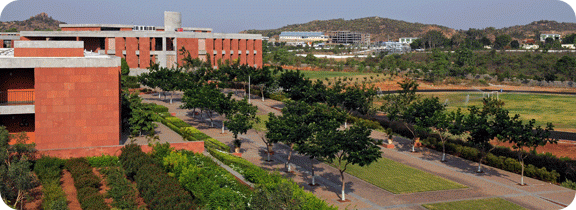
About the Academy
The Aga Khan Academy Hyderabad is an International Baccalaureate (IB) World School and is the second in the network of Aga Khan Academies established by His Highness the Aga Khan.
The Academy features state-of-the-art facilities, a multicultural student body, and an experienced team of educators and staff. We provide students with education of the highest standard in order to prepare them for lives characterised by leadership and service.
Admission to the Academy is competitive and based on student merit, regardless of a family’s ability to pay. We consider all eligible students regardless of socio-economic status.
Mission statement
The following is the mission statement of the Aga Khan Academy Hyderabad:
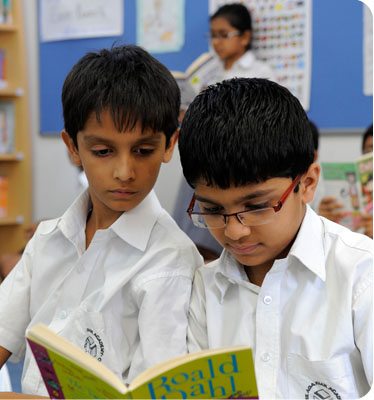 "The Academy will identify and nurture exceptional young people from any background with the potential to become effective, ethical leaders. It will be a joyful community of lifelong, fearless learners who are culturally-rooted and internationally-minded. Academy graduates will be reflective, compassionate, adventurous and creative citizens empowered as stewards to make a positive contribution in a changing world."
"The Academy will identify and nurture exceptional young people from any background with the potential to become effective, ethical leaders. It will be a joyful community of lifelong, fearless learners who are culturally-rooted and internationally-minded. Academy graduates will be reflective, compassionate, adventurous and creative citizens empowered as stewards to make a positive contribution in a changing world."
A culture of excellence
As with all the Aga Khan Academies, we are committed to excellence in all aspects of education. This commitment includes the academic curriculum as well as the campus where students live and learn.
Our campus is architect designed and purpose built. It features state-of-the-art classrooms and resource areas, and extensive sports facilities. These outstanding facilities provide an inspiring environment for both students and staff.
At the Academy, we strive to create a balance between academic demands, sports, cultural activities, and community life. We challenge our students to be intellectually inquisitive and socially conscious. We also encourage them to respect and appreciate other people’s cultures, social structures, values and beliefs.
A rigorous academic programme
Our academic programme has been developed through the implementation of the widely-recognised International Baccalaureate. The programme is designed to challenge students of all backgrounds.
Our aims for our students include:
- promoting academic excellence
- enhancing analytical and study skills
- building leadership skills
- fostering an ethical outlook and sense of civic responsibility
- developing an understanding of global issues
- encouraging creativity.
Experienced local and international teachers lead our programmes. Faculty members are up-to-date with the best educational practices. They are committed both to their students’ learning and to their own continuing professional development.
India's Independence Celebration – Tuesday 15th August
Residential students and staff will commemorate this important event - 8:30am at Academy Boulevard with celebration breakfast to follow.
